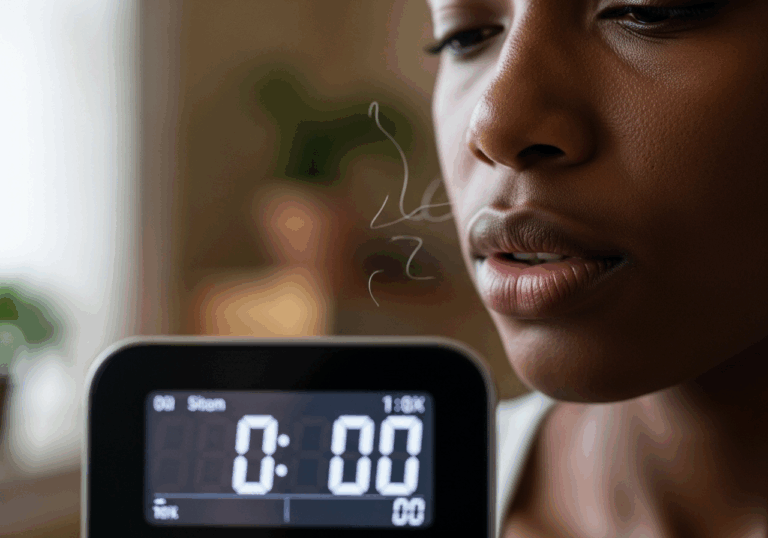Science-Backed Tips
Boost Your Heart Rate Variability with Deep Breathing
Structured deep breathing increases HRV by ~25% for better relaxation.
📊 Did you know?
💡 Why It Matters
🌟
Higher HRV is associated with improved autonomic flexibility, which can enhance stress resilience.
🌟
Improving HRV by 25% can lead to better emotional regulation, reducing anxiety and depression symptoms.
🌟
Enhanced relaxation through deep breathing can improve overall quality of life and mental health.
✅ Try These Micro-Tips
🎯
Engage in structured deep breathing for 10 minutes daily to improve HRV.
🚀
Practice deep abdominal breathing at least 3 times a week for optimal benefits.
☀️
Incorporate guided breathing exercises into your morning routine for better emotional regulation.
🌱
Use a breathing app to track your sessions and progress over time.
📚 The study
Discover the power of your breath and unlock a healthier, more balanced you!
❓ Frequently Asked Questions ❓
Learn more
What is heart rate variability (HRV)?
Heart rate variability (HRV) is the variation in time between heartbeats, reflecting the autonomic nervous system’s regulation of the heart. Higher HRV is generally associated with better emotional regulation and stress resilience.
How does deep abdominal breathing affect HRV?
Engaging in guided deep abdominal breathing can acutely increase HRV by approximately 25%. This improvement supports emotional regulation and enhances relaxation.
What are the benefits of increased HRV?
Higher HRV is linked to improved autonomic flexibility, which can enhance stress resilience and mood resilience. It is also associated with better emotional regulation, reducing symptoms of anxiety and depression.
How long should I practice deep breathing to see benefits?
Practicing structured deep breathing for just 10 minutes daily can significantly improve HRV. For optimal benefits, aim to practice deep abdominal breathing at least three times a week.
Can deep breathing improve my overall quality of life?
Yes, enhanced relaxation through deep breathing can lead to improvements in overall quality of life and mental health. This practice can help reduce stress and promote emotional well-being.
What is the difference between structured and natural deep breathing?
Structured deep breathing involves specific techniques and patterns, while natural deep breathing is more spontaneous and unregulated. Research shows that structured deep breathing can lead to greater increases in HRV.
How can I incorporate deep breathing into my daily routine?
Incorporating guided breathing exercises into your morning routine can help establish a consistent practice. Using a breathing app to track your sessions can also enhance your commitment and progress.
Is there a specific breathing technique I should use?
Guided deep abdominal breathing techniques are recommended for improving HRV. These techniques often focus on slow, deep breaths that engage the diaphragm.
How quickly can I expect to see changes in my HRV?
You may notice an increase in HRV after just five minutes of structured deep breathing. Regular practice can lead to more sustained improvements over time.
What role does deep breathing play in emotional regulation?
Deep breathing techniques can enhance emotional regulation by promoting relaxation and reducing stress levels. This can lead to a decrease in anxiety and depression symptoms.





